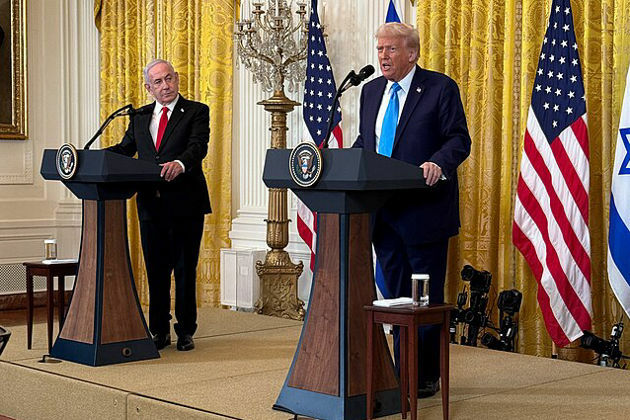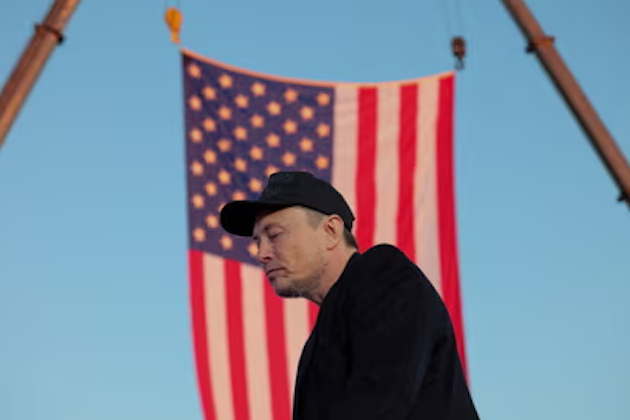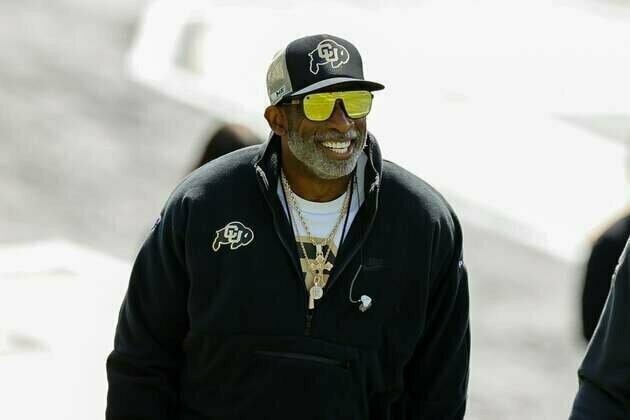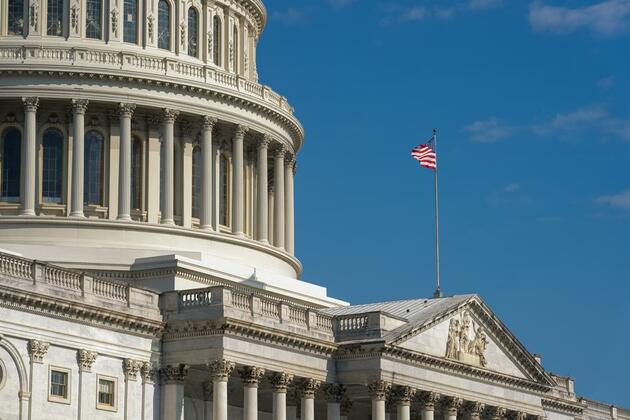US Supreme Court Says States May Punish 'Faithless Electors'
Voice of America
07 Jul 2020, 01:05 GMT+10
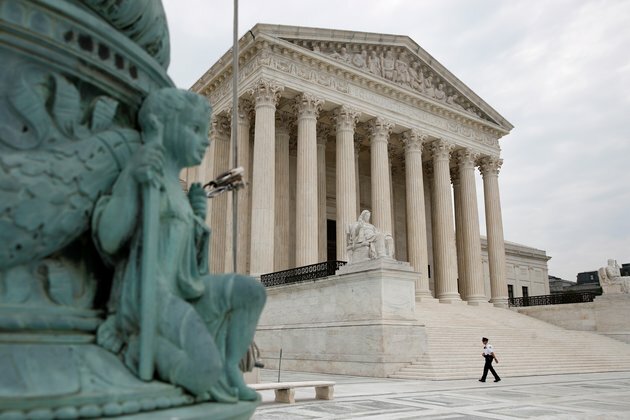
WASHINGTON - The U.S. Supreme Court has four simple words for members of the Electoral College who fail to back the winner of their state's popular vote in presidential elections:
"We the people rule."
In a unanimous decision, the nine-member high court Monday ruled that members of the Electoral College, the body that elects the U.S. president, are not "free agents" and that states may penalize them for breaking their pledge.
"The Constitution's text and the nation's history both support allowing a state to enforce an elector's pledge to support his party's nominee - and the state voters' choice - for president," liberal Justice Elena Kagan wrote in a 33-page opinion on behalf of the court.
The decision came in a pair of cases involving so-called "faithless electors," members of the Electoral College who choose someone other than the presidential candidate who carries their state's popular vote.
Although "faithless electors" have never influenced the outcome of a U.S. presidential election, the ruling restores a degree of certainty to the electoral system ahead of another contentious presidential vote in November.
Most states compel their presidential electors to take a pledge to support the winner of the statewide vote. Of these, 15 states have laws that fine or remove electors for breaking their promise. The question before the Supreme Court was whether these laws are constitutional.
The U.S. method of picking presidents is unique in the world.
2016 scheme
When Americans cast their ballots for a presidential candidate, they are actually choosing members of the Electoral College, the 538-member body that meets later to formally elect the president. To become president, a candidate needs at least 270 electoral votes.
In November 2016, shortly after Donald Trump's victory but before the Electoral College voted, a group of Democratic presidential electors concocted a scheme to head off the real estate mogul's entry to the White House.
With no Republican elector willing to jump ship and pick Hillary Clinton, Democratic electors Peter Chiafalo and Michael Baca figured the only way they could stop Trump was to persuade other electors to "write in" a compromise candidate such as former Secretary of State Colin Powell.
Recruiting four fellow Democratic members of the Electoral College, they formed a group they called the "Hamilton Electors," claiming that American founding father Alexander Hamilton wanted electors to stop an "unqualified demagogue" from taking office.
Not a single Republican elector flipped. But when Chiafalo and two fellow Democratic electors in Washington state went ahead and voted for Powell instead of Clinton, the winner of the statewide vote, state authorities fined each $1,000. In Baca's case in Colorado, another state carried by Clinton, he was removed before he could cast his vote for another Republican candidate.
The Democratic activists then sued their states for disciplining them, setting off a legal chain reaction that ended up before the Supreme Court this year.
'Free agents' or 'proxies'?
The questions before the justices boiled down to this: Are electors "free agents" allowed to vote their minds, or are they "proxies" for the popular will? And can states punish them if they go against the wishes of the voters?
During oral arguments in May, lawyers for Chiafalo and Baca argued that while states have the power under the Constitution to appoint members of the Electoral College, they have the right to vote however they please.
But lawyers for Washington state and Colorado said that the Constitution gives states the power to both appoint and remove the electors. What's more, they said, allowing electors to vote as they wish could lead to chaos in presidential elections
The Supreme Court sided with the states. Kagan wrote that the U.S. Constitution gives states "broad powers over electors and gives electors themselves no rights."
"Among the devices states have long used to achieve their object are pledge laws, designed to impress on electors their role as agents of others," she wrote. "A state follows in the same tradition if, like Washington, it chooses to sanction an elector for breaching his promise."
When a state tells its electors that they can't vote against the wishes of the people, Kagan continued, that "direction accords with the Constitution - as well as with the trust of a nation that here, We the People rule."
Historically, faithless voting has been a rarity: In more than two centuries, only 100 or so electors have defected, and they have never changed the outcome of a presidential election. In 2016, seven electors cast "faithless" votes, the most in a century, but well short of what was needed to sway the election.
This is the first time in 34 years that the court has decided a case after the July 4th Independence Day holiday. Oral arguments in 10 cases, including those involving the faithless electors, were conducted via teleconference in May after the high court postponed arguments in March and April because of the coronavirus pandemic.
 Share
Share
 Tweet
Tweet
 Share
Share
 Flip
Flip
 Email
Email
Watch latest videos
Subscribe and Follow
Get a daily dose of Denver Sun news through our daily email, its complimentary and keeps you fully up to date with world and business news as well.
News RELEASES
Publish news of your business, community or sports group, personnel appointments, major event and more by submitting a news release to Denver Sun.
More InformationInternational
SectionTragedy in Spain: Diogo Jota and his brother die in car accident
MADRID, Spain: Liverpool footballer Diogo Jota and his younger brother, André Silva, have died in a car accident in Spain. Spanish...
Early heatwave grips Europe, leaving 8 dead and nations on alert
LONDON, U.K.: An unrelenting heatwave sweeping across Europe has pushed early summer temperatures to historic highs, triggering deadly...
U.S. military, China, Russia in Space race
President Donald Trump's plans to build a space-based Golden Dome missile defense shield have drawn immediate criticism from China,...
Trump wins $16 million settlement from Paramount over CBS Harris edit
NEW YORK CITY, New York: Paramount has agreed to pay US$16 million to settle a lawsuit brought by U.S. President Donald Trump over...
British PM faces major party revolt over welfare reforms
LONDON, U.K.: British Prime Minister Keir Starmer won a vote in Parliament this week to move ahead with changes to the country's welfare...
White House meeting between Trump, Netanyahu on July 7
WASHINGTON, D.C.: President Donald Trump will meet Israeli Prime Minister Benjamin Netanyahu at the White House on Monday. President...
Colorado
SectionICE raids leave crops rotting in California, farmers fear collapse
SACRAMENTO, California: California's multibillion-dollar farms are facing a growing crisis—not from drought or pests, but from a sudden...
Trump hints at DOGE investigation of Musk subsidies
WASHINGTON, DC - U.S. President Donald Trump on Tuesday claimed Elon Musk's success has been built on government subsidies. Without...
Ailing Deion Sanders expected to return to work soon
(Photo credit: Isaiah J. Downing-Imagn Images) Colorado coach Deion Sanders, who has been suffering from an undisclosed medical condition,...
Rockies face White Sox, still hope for first home-series victory
(Photo credit: Brad Mills-Imagn Images) The Colorado Rockies have yet to win a home series this season, but they still have a chance...
Roundup: Rallies held across U.S. on Independence Day against Trump policies
These July 4 protests stood in stark contrast to Trump's America 250 initiative, launched on Memorial Day in May to count down to the...
White Sox SS Colson Montgomery makes big-league debut
(Photo credit: Joe Camporeale-Imagn Images) Chicago White Sox shortstop prospect Colson Montgomery, promoted from Triple-A Charlotte...






